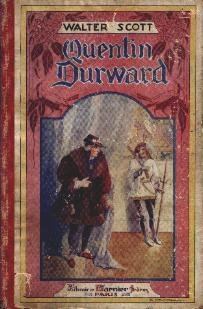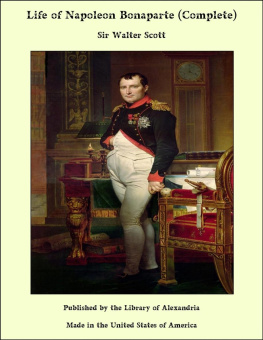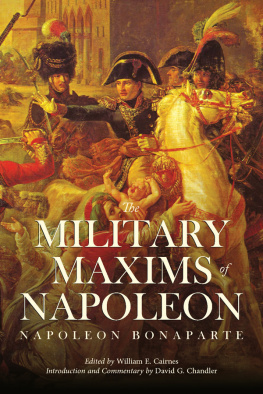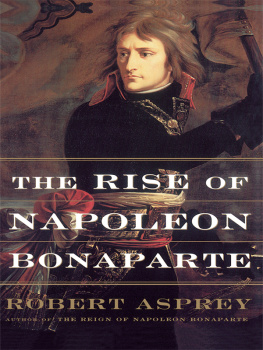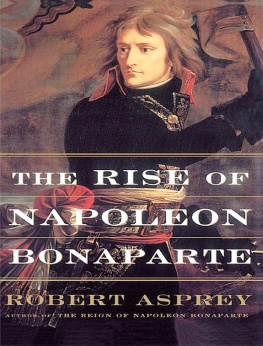CHAPTER I.
CHAPTER I.
CorsicaFamily of BuonaparteNapoleon born 15th August, 1769His early habitsSent to the Royal Military School at BrienneHis great Progress in Mathematical ScienceDeficiency in Classical LiteratureAnecdotesRemoved to the General School of ParisWhen in his Seventeenth Year, appointed Second Lieutenant of ArtilleryHis early PoliticsPromoted to a CaptaincyPascal PaoliNapoleon sides with the French Government against PaoliAnd is banished from CorsicaVisits Marseilles, and publishes the Souper de Beaucaire.
The island of Corsica was, in ancient times, remarkable as the scene of Seneca's exile, and in the last century was distinguished by the memorable stand which the natives made in defence of their liberties against the Genoese and French, during a war which tended to show the high and indomitable spirit of the islanders, united as it is with the fiery and vindictive feelings proper to their country and climate.
In this island, which was destined to derive its future importance chiefly from the circumstance, Napoleon Buonaparte , or Bonaparte ,
CORSICA.
All that is known with certainty of Napoleon's family may be told in few words. The Buonapartes were a family of some distinction in the middle ages; their names are inscribed in the Golden Book at Treviso, and their armorial bearings are to be seen on several houses in Florence. But attached, during the civil war, to the party of the Ghibellines, they of course were persecuted by the Guelphs; and being exiled from Tuscany, one of the family took refuge in Corsica, and there established himself and his successors, who were regularly enrolled among the noble natives of the island, and enjoyed all the privileges of gentle blood.
The father of Napoleon, Charles Buonaparte, was the principal descendant of this exiled family. He was regularly educated at Pisa, to the study of the law, and is stated to have possessed a very handsome person, a talent for eloquence, and a vivacity of intellect, which he transmitted to his son. He was a patriot also and a soldier, and assisted at the gallant stand made by Paoli against the French. It is said he would have emigrated along with Paoli, who was his friend, but was withheld by the influence of his father's brother, Lucien Buonaparte, who was Archdeacon of the Cathedral of Ajaccio, and the wealthiest person of the family.
It was in the middle of civil discord, fights, and skirmishes, that Charles Buonaparte married Ltitia Ramolini, one of the most beautiful young women of the island, and possessed of a great deal of firmness of character. She partook the dangers of her husband during the years of civil war, and is said to have accompanied him on horseback in some military expeditions, or perhaps hasty flights, shortly before her being delivered of the future emperor. III. Carlotta, or Caroline, wife of Murat, and Queen of Naples.
The family of Buonaparte being reconciled to the French government after the emigration of Paoli, enjoyed the protection of the Count de Marbuf, the French Governor of Corsica, by whose interest Charles was included in a deputation of the nobles of the island, sent to Louis XVI. in 1779. As a consequence of this mission, he was appointed to a judicial situationthat of assessor of the Tribunal of Ajacciothe income of which aided him to maintain his increasing family, which the smallness of his patrimony, and some habits of expense, would otherwise have rendered difficult. Charles Buonaparte, the father of Napoleon, died at the age of about forty years, of an ulcer in the stomach, on the 24th February 1785. His celebrated son fell a victim to the same disease. During Napoleon's grandeur, the community of Montpellier expressed a desire to erect a monument to the memory of Charles Buonaparte. His answer was both sensible and in good taste. "Had I lost my father yesterday," he said, "it would be natural to pay his memory some mark of respect consistent with my present situation. But it is twenty years since the event, and it is one in which the public can take no concern. Let us leave the dead in peace."
The subject of our narrative was born upon the 15th day of August 1769, at his father's house in Ajaccio, forming one side of a court which leads out of the Rue Charles. So that Napoleon had the rare honour of promoting his patron saint.
The young Napoleon had, of course, the simple and hardy education proper to the natives of the mountainous island of his birth, and in his infancy was not remarkable for more than that animation of temper, and wilfulness and impatience of inactivity, by which children of quick parts and lively sensibility are usually distinguished. We leave it to philosophers to inquire, whether the future love of war was suggested by the accidental possession of such a toy; or whether the tendency of the mind dictated the selection of it; or, lastly, whether the nature of the pastime, corresponding with the taste which chose it, may not have had each their action and reaction, and contributed between them to the formation of a character so warlike.
The same traveller who furnishes the above anecdote, gives an interesting account of the country retreat of the family of Buonaparte, during the summer.
Going along the sea-shore from Ajaccio towards the Isle Sanguinire, about a mile from the town, occur two stone pillars, the remains of a door-way, leading up to a dilapidated villa, once the residence of Madame Buonaparte's half-brother on the mother's side, whom Napoleon created Cardinal Fesch. The house is approached by an avenue, surrounded and overhung by the cactus and other shrubs, which luxuriate in a warm climate. It has a garden and a lawn, showing amidst neglect, vestiges of their former beauty, and the house is surrounded by shrubberies, permitted to run to wilderness. This was the summer residence of Madame Buonaparte and her family. Almost enclosed by the wild olive, the cactus, the clematis, and the almond-tree, is a very singular and isolated granite rock, called Napoleon's grotto, which seems to have resisted the decomposition which has taken place around. The remains of a small summer-house are visible beneath the rock, the entrance to which is nearly closed by a luxuriant fig-tree. This was Buonaparte's frequent retreat, when the vacations of the school at which he studied permitted him to visit home.How the imagination labours to form an idea of the visions, which, in this sequestered and romantic spot, must have arisen before the eyes of the future hero of a hundred battles!
BRIENNE.
The Count de Marbuf, already mentioned as Governor of Corsica, interested himself in the young Napoleon, so much as to obtain him an appointment [April, 1779] to the Royal Military School at Brienne, which was maintained at the royal expense, in order to bring up youths for the engineer and artillery service. The malignity of contemporary historians has ascribed a motive of gallantry towards Madame Buonaparte as the foundation of this kindness; but Count Marbuf had arrived at a period of life when such connexions are not to be presumed, nor did the scandal receive any currency from the natives of Ajaccio.



